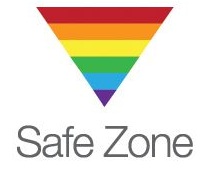In this moment, in your community, region, or nation, it feels like the world as you know it is crashing down. Because of the COVID-19 pandemic, your whole existence has been disrupted and challenged. The hugs that we received from our loved ones two weeks ago feel like an increasingly distant memory, as we all settle into the abrupt changes and feelings of isolation that are accompanying this global pandemic.
You might be tempted to jump into action, meticulously planning every moment of your day or your family’s day. You may be throwing together your kids’ schedules and preparing to home school them on the fly, while working from home and taking care of the usual day-to-day tasks that don’t just go away during a crisis like this. In fact, it may feel comforting to have strict structure and to try to maintain the exact routines from two weeks ago.
Except that you’re forgetting one thing-- the world has drastically changed from what it was two weeks ago. The same routines that worked then are not likely to work now, and the comfort that comes with predictability may feel like it’s fading away.
And this is exactly why it’s important to give yourself grace right now.
If you are feeling overwhelmed, anxious, scared, numb, angry, depressed, or any other jumbled up mess of emotions, please know that collectively as a world, we are all experiencing that same messiness. You are not alone in feeling worried. You are not overreacting.
Please give yourself and your family time to adjust. Give yourself and your family time to rest. The intensive schedules, hours of learning, and relentless daily grind can more than likely wait for another week or two while you and your loved ones become acquainted with this new reality. You can build in some room for self-care during this time, even if you have to continue working from home. Remember, this is a marathon, not a sprint.
What we are experiencing right now is a worldwide, collective trauma unfolding in real time, that is being compounded by the grief and loss of the comfort and certainty that we had just a couple of weeks ago.
This pandemic is triggering fears of scarcity, safety, and helplessness, and many of us feel like we are in a constant state of fight, flight, freeze. Our survival instincts are working on overdrive to keep us safe, which is exhausting for the mind and body.
When we experience trauma and grief in our lives, we need to encourage our brain and body to recover by slowing down, not speeding up.
The temptation is to distract and avoid by doing more and accomplishing more, but the unfortunate outcome is that those same feelings that were avoided eventually resurface, usually as racing thoughts when you’re trying to get to sleep at night.
Instead, put the calendars and schedules on hold for the time being. If your schedule is jam packed with activities, eliminate some of those activities and prioritize connection time with loved ones. I’m not saying to have no structure at all and sleep all day for weeks on end and let everything be a complete free for all of chaos, but I am saying to relax the structure significantly.
Spend time playing games, taking walks in the neighborhood (while following social distancing guidelines), reading books, having conversations, and snuggling. Couples or families can cook a delicious meal together, and if you have family or friends who may be struggling and aren’t accessible in person right now, Skype them in so that they can enjoy the fun and feel connected. You can restart school and structure in a few days once the dust has settled a bit, but for now, just connect.
If your kids are struggling to adjust, talk to them in an age appropriate manner about what is going on, listen to how they’re feeling, and then normalize their feelings, which likely include fear, anxiety, sadness, and frustration. If you have kids who are struggling to understand why they cannot spend time with friends or why they cannot go outside in large groups, use the metaphor of the elephant herd:
Elephants show great empathy towards one another and they are social creatures that look out for their community or herd. Healthy elephants refuse to leave the sick or injured behind, and the healthy elephants will rally together to ensure the sick elephant’s safety. By socially isolating, we are contributing towards our community and loved ones’ safety, and we are caring for them by not exposing them to germs that could get them sick. With so many of the people in this world at risk for getting sick, we all need to do our part by socially isolating. Teaching children the importance of empathizing with others and thinking of others’ needs during this time is a valuable lesson that they can carry with them beyond these times.
Focus on being present and living life in this moment. Ground yourself in small ways throughout the day in order to avoid dwelling on the past or future, which is where anxiety lives and thrives. You can do this by building time into your day to sit outside on your back deck or balcony where you can try and see how many different bird calls you can hear. Ground yourself by taking pictures of the blooming flowers and by breathing in the beauty of the breeze on a spring day.
Just exist in this moment and take it all in.
If you’re finding yourself with more time on your hands than you’re used to, take this moment to allow yourself to feel okay with whatever it is you are feeling.
Emotions are like waves in the ocean, they roll in and roll out periodically, and sitting with uncomfortable emotions develops you into a masterful surfer. Feelings, no matter how scary or all consuming at times, are still temporary, and they too will pass.
You can work on sitting with difficult emotions for even a minute or two at a time to start, and then increase how long you sit with it by 30 seconds incrementally when you are ready. For example, you can set a timer for 1 minute, allow yourself to experience an uncomfortable emotion such as anxiety, notice where you are feeling that anxiety in your body, and then ground yourself in the present moment by breathing deeply and noticing something from each of your five senses.
Prior to COVID-19, creative endeavors may have been put on hold for a long time due to the fast pace of work or the pressure to accomplish tasks on the weekends. This can be an opportunity to embrace some of your creative outlets, such as listening to or creating music, painting/sketching, or writing stories or poetry. If you’ve wanted to learn a skill and have not had an opportunity to do so, YouTube some tutorials on that skill and take the first step towards learning it.
Let’s all be like the elephants and take care of our herd—ourselves, our loved ones, our community, and our world. Lean on your supports and get creative in the ways that you take care of yourself and your loved ones during this time. Check in on those close to you and connect whenever possible.
If you need additional support, therapy provides a space to process what you are experiencing.
I am an EMDRIA Certified EMDR therapist offering video sessions to kids, teens, and adults in Virginia who are coping with anxiety and trauma, so feel free to reach out through my website if you’d like support. www.nidhitewarilcsw.com
Stay safe, healthy, and grounded out there!
Warmest Wishes,
Nidhi Tewari, LCSW



